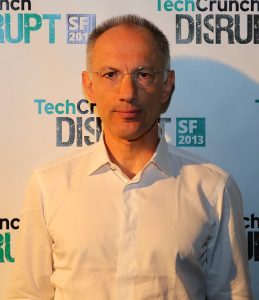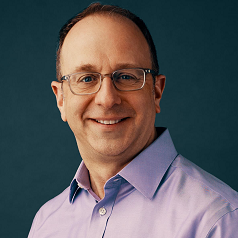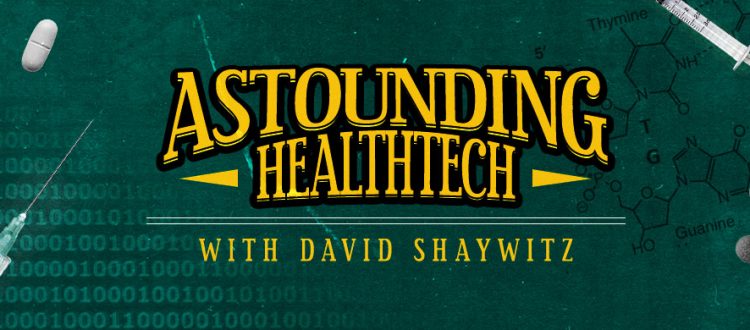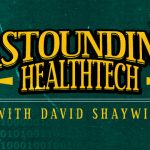Enduring Uncertainty, Hoping for Luck, Touched by Magic

David Shaywitz
A main theme of this column – perhaps even the dominant theme – is how to operate in a power-law domain like drug development where there are few, outsized successes, where most efforts end in failure, and where it’s incredibly difficult to predict in advance how you are likely to fare.
Earlier this week, I discussed the parallels between film and drug development, highlighting how messy and unpredictable the road to success can be as highlighted by the Marvel Cinematic Universe (MCU) in cinema, and Keytruda and Velcade in pharma.
My conclusion was that in both these domains, success is contingent, but not random; you need to be really lucky in order to succeed, but you can also make choices along the way both to increase your exposure to serendipity and to maximize the opportunity to benefit from it.
Despite, or more likely, because of the incredible uncertainty that inevitably underlies their decisions, many investors and founders tend to project a disproportionate degree of confidence regarding choices and paths that you know are extremely high risk. It’s easy to confuse this projected conviction with actual knowledge, and to allow yourself to believe that these individuals must really know what they’re talking about.
On the other hand, as we’ll see, the very uncertainty of success makes achieving it all the more special.
Several recent interviews help provide a sense of perspective here.
Scott Galloway: Luck, timing, and the cultivation of allies
NYU Professor Scott Galloway, co-host of the popular Pivot podcast with Kara Swisher, was recently asked about what distinguishes highly successful people from everyone else. He replied that “something that plagues people, especially tech bros, is they conflate luck with talent,” adding “the most common attribute” of successful people is that “they were born at the right place and the right time… the majority of people’s success is not their fault.”
This, of course, aligns extremely well with a central theme of Malcolm Galdwell’s Outliers, discussed earlier this week, and reviewed here. Gladwell emphasizes the importance of being born in the right time and place, pointing to examples like Microsoft co-founder Bill Gates, and Sun Microsystems’ co-founder Bill Joy, among others.
Timing is also an underappreciated factor in VC returns. A recent piece from the StepStone Group described the “Vintage Year Power Law… the notion that a small number of vintage years within venture capital have historically produced most of the returns for the asset class.”
Galloway also emphasized the value of soft skills like ensuring you “collect allies,” which increases the chances that you are “are constantly put in rooms of opportunities.”
Michael Moritz: Even great success not obvious early on
Legendary Sequoia investor and former journalist Michael Moritz, in a wide-ranging interview, was asked about the ability to discern early on whether a founder and a company are likely to make it big.

Michael Moritz
His candid response (emphasis added):
“When you invest in a company … you hope it will work, that the product will be enthusiastically received by customers, but you don’t know that in real time. I have never been involved in an investment that became a very successful business, without fearing earlier that the business was going to fail, not even once.”
The interviewer followed-up, “Not even when you worked with the founders of Google in their early days?”
Moritz replied:
“Not even then. The initial business model was very different from the business model we know today, and during the first eight months of the investment the company lost a huge amount of money and I was afraid we would run out of cash.”
This echoes my favorite adage from famed Harvard surgeon-scientist Judah Folkman, discussed earlier this week, and also in this 2017 piece about success narratives:
“If your idea succeeds, everybody says you’re persistent. If it doesn’t, you’re obstinate.”
The key point is you need conviction to achieve success, you need to move in a particular direction (former Pixar CEO Ed Catmull makes a similar point in Creativity, Inc). But – and this is what’s so hard – it’s often impossible to figure out along the way whether you are brilliant or deluded. As Moritz points out, even Google – today a $2 trillion (with a “t”) company – wasn’t obviously a success early on.
Sam Blackman’s Story
Sam Blackman, a physician-scientist, is a pediatric oncologist by training (you can hear about his origin story on this 2018 episode of Tech Tonics) who pivoted to drug development.
He’s now the co-founder and head of R&D of Day One Biopharmaceuticals, a developer of cancer drugs for children. In late April, their lead drug candidate, tovorafenib (Ojemda), was granted accelerated approval by the FDA for use in a type of pediatric brain tumor.
This story is worthy of our attention for several reasons.

Sam Blackman, MD, PhD; co-founder, head of R&D, Day One Biopharmaceuticals
First, there’s the drug’s convoluted path to approval: as summarized independently by Bruce Booth, Jacob Plieth, and Ron Leuty, the “molecule was discovered in a collaboration between Sunesis & Biogen that started 20 years ago” as Booth notes, then reverted to Sunesis after Biogen deprioritized oncology. Takeda licensed it in 2011, and spent seven years developing it for multiple myeloma, without success.
Day One licensed it from Takeda in 2020, targeting a specific condition for which it seemed especially well-suited. (See Timmerman Report from May 2020 on the origin story of Day One Biopharma, and this deep-dive interview from Aug. 2021 with Blackman and co-founder Julie Grant on The Long Run podcast.)
Last month, their years of effort culminated in the FDA granting accelerated approval. This medicine is the first of its kind approved for children with pediatric low-grade glioma. It has shown it can shrink tumors in more than half of patients. This means that many children with this terrifying diagnosis may be able to avoid high-dose chemotherapy and all its toxic side effects, and instead take this medicine as a bridge to a healthy adulthood, when these types of tumors tend to subside.
It’s a life-changing medicine.
Those basic facts make for a compelling story. But what this account fails to capture, is the tortuous emotional journey of drug development from the perspective of those doing the developing. Here we are unusually fortunate, because Blackman – an expert story-teller and Moth veteran – has given us a treat.
In a 12-minute video shared on LinkedIn, Blackman walks us through the experience of developing this medicine. Blackman captures, in the most effective way I’ve ever seen, the interior monologue of drug development – the feeling of confronting tremendously long odds, the persistent hopes, the crushing disappointments, and all at a very personal and relatable level.
It’s essential viewing for anyone curious why we in life science do what we do, and an expression of what, at our best and most fortunate, we can achieve.
While the video absolutely must be watched in its entirety – yes it’s worth your 12 minutes – I can’t resist summarizing just a few relevant highlights.
- A formative experience first learning about drug development during an in-house course at GSK, when the instructor told attendees to look at the person sitting to their left and to their right, and explained, “the odds are that none of you will ever work on a drug that gets approved. None of you.”
- His experiences in early cancer drug development, where he’d “work on programs where the science seemed totally understood, where the preclinical data was so compelling that it made me want to get that IND filed and get that drug into patients as quickly as possible — only to have something unexpected blow the program out of the water.”
- The feeling of constantly anticipating each new drug was going to be successful, and imaging what that would feel like, and then “a year would go by or two and it wouldn’t work. I’d see the data. They’d be meh.”
On his reflections after failures:
“I’d look back across failed programs, and sometimes I’d see the decisions that we made along the way about how to develop the molecule, and I’d see that those decisions were right, but the science was wrong. Or sometimes I look back and I see that the science was right, but we made the wrong decisions and choices. I’d look backwards and see all the could-have-beens and should-have-beens and the never-could-have-beens, and I realized, yeah, it’s possible that no matter how hard I work or how hard I tried, it may very well be that I could spend the remaining years of my career and have nothing to show for it, but having worked on a bunch of programs, never having made a new medicine.”
On the challenges of making critical decisions with incomplete and imperfect information.
“All of the times that we had to be right, and all of the times we had to not be wrong.”
On the contingency of success:
“I can look back now and see how rare it is to be at this point for all of us at Day One, to have arrived in this place and at this very moment together, because so many things had to work out just right.”
These small excerpts don’t begin to do justice to the magnificence of Blackman’s talk (again: please watch!), but they highlight just how incredibly difficult and fraught it is to get a new drug to patients.
But when it happens — when, as Blackman says, you touch your dream for the first time — “it feels absolutely magical.”





